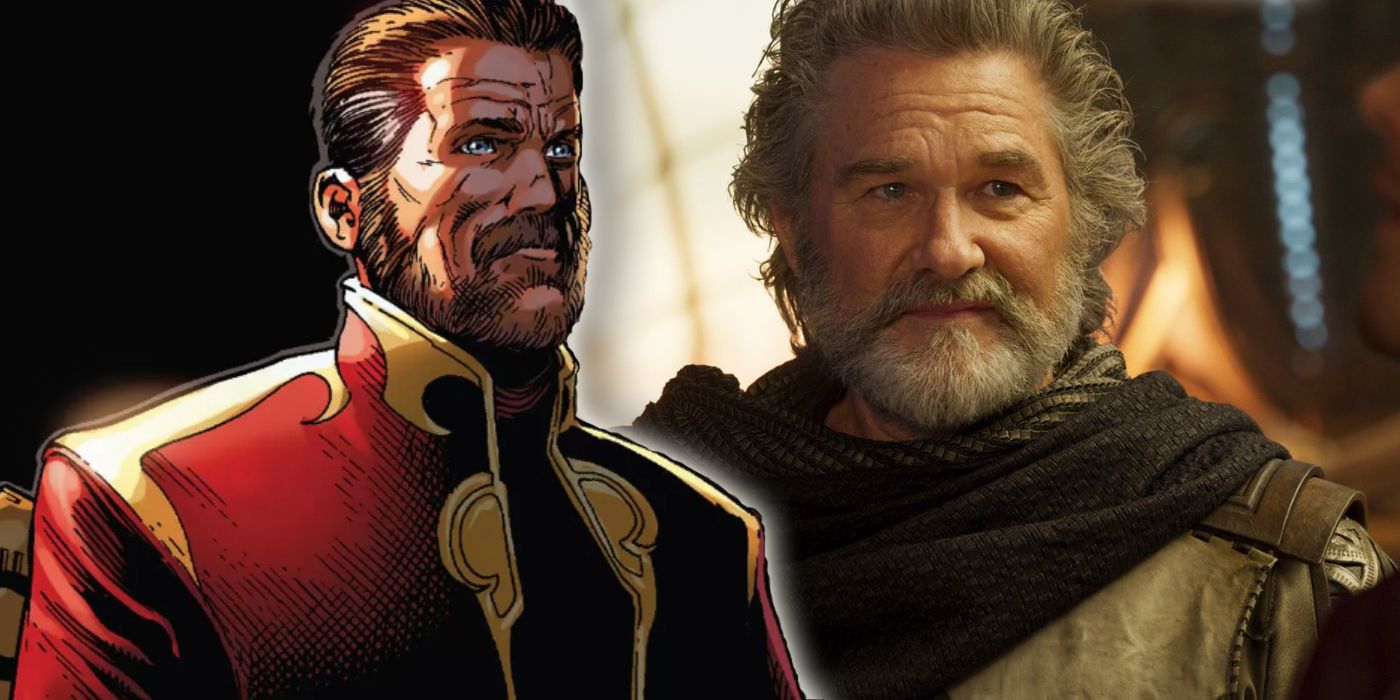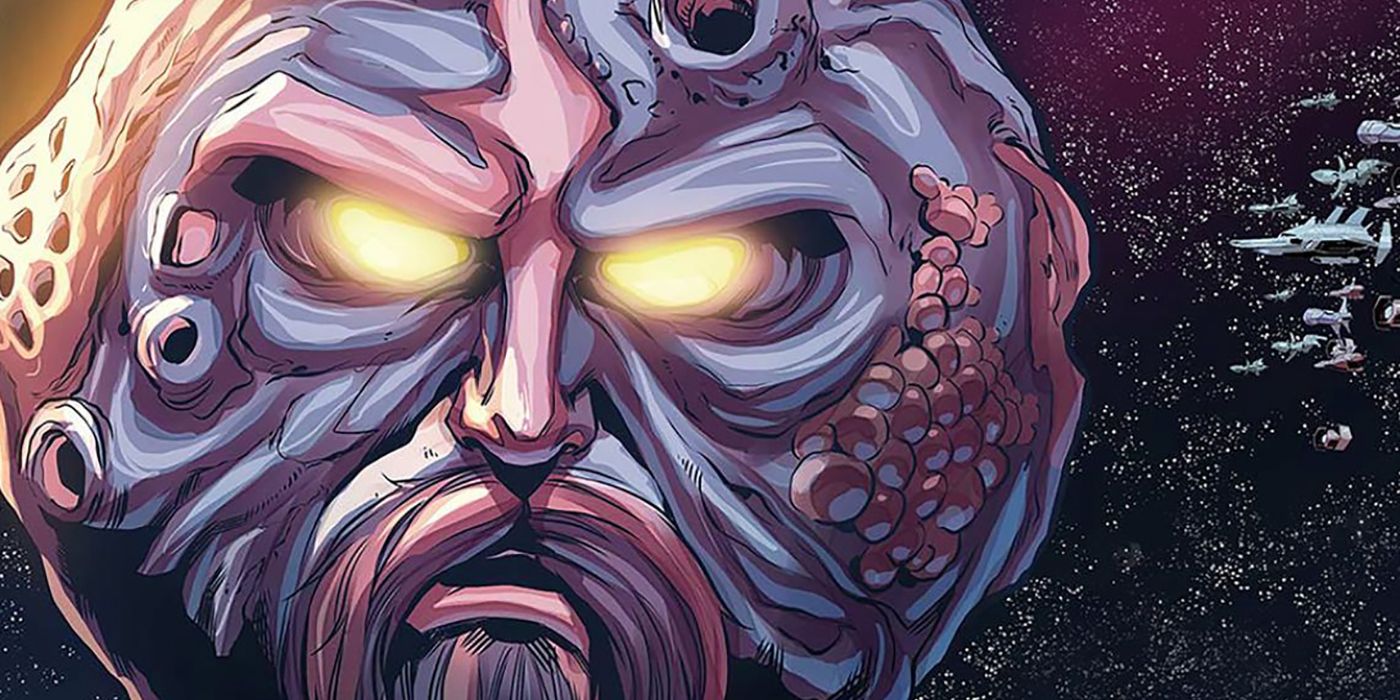
Long before the Guardians of the Galaxy became cinematic superstars, the father of Star-Lord was J'Son. However, that character had a complex, contradictory history before he was drastically re-envisioned in Brian Michael Bendis and Steve McNiven relaunched Guardians of the Galaxy in the early 2010s.
When Guardians of the Galaxy Vol. 2 introduced Quill's father on the big screen, he went through an even more radical transformation. Several aspects of the character were merged with a dramatically different cosmic Marvel character to give Star-Lord a new father in the Marvel Cinematic Universe. Now, we're taking a look back at both of Star-Lord's dads and how they differed in Marvel's various universes.

The current version of J'Son was the Emperor of Spartax, one of the many worlds that makes up the political landscape of cosmic corner of the Marvel Universe. J'Son was exploring the cosmos when his ship crash-landed on Earth, where he's taken in by Meredith Quill, a young woman who falls in love with him. J'Son eventually repairs his ship and returns to Spartaxx to take part in a cosmic war. He leaves without realizing that Meredith is pregnant with his child.
Eventually, J'Son learned that his father was one of the galactic emperors trying to outlaw intergalactic interaction with the Earth. J'Son had the Guardians arrested, and tried his best to convince his son to join him as the ruling class of Spartax. The two clashed multiple times until J'Son was exiled and rebelled against by the Spartax population. He briefly spent some time as an intergalactic criminal before being captured by the Collector. He was freed by his daughter Victoria, and he has attempted to reassume his former position.

J'Son doesn't exist in the MCU, although Meredith still falls in love with a galactic visitor. In the MCU however, it's Ego the Celestial, a living world who can create a human-life body. On a mission to sire a child who can help expand his powers around the galaxy, Ego leaves children everywhere throughout the universe, including Peter Quill. Quill eventually ends up in space and as a member of the Guardians of the Galaxy when Yondu refuses to turn Quill over to Ego. Ego first appears in Guardians of the Galaxy Vol. 2, finally finding his son.
Initially, Ego poses as a kindly father figure. But when the full extent of his plans and past crimes are exposed, including giving Meredith cancer to remove any temptation for him to remain on Earth with her, he turns on Quill. Working with the Guardians, Quill is able to confront him and stall him long enough for Groot to set up a bomb within the core of Ego's being. Despite his pleadings, Quill keeps his father from stopping the bomb. Ego dies, collapsing in on himself and stripping Quill of his Celestial powers.

In the mainstream Marvel Universe, Ego the Living Planet is much more of an ambiguous figure. Ego is a living world that consumes other ships and smaller planets to maintain its has structure and expand. Thor encountered Ego as both an enemy and ally, even helping protect the living planet when Galactus tried to consume the world. However, Galactus would eventually call Ego an ally when he empowered Ego and turned him into Ego-Prime.
Despite sharing a name and a broad version of the same abilities, the two different versions of Ego couldn't be more different. They have completely different roles within the Marvel Universe and have confronted different heroes. Ultimately, the comics Ego isn't the straightforward villain that his cinematic counterpart is. Comics Ego is far less manipulative or demented than his cinematic form, who took on many of the harsher aspects of J'Son as well.
Add Comments